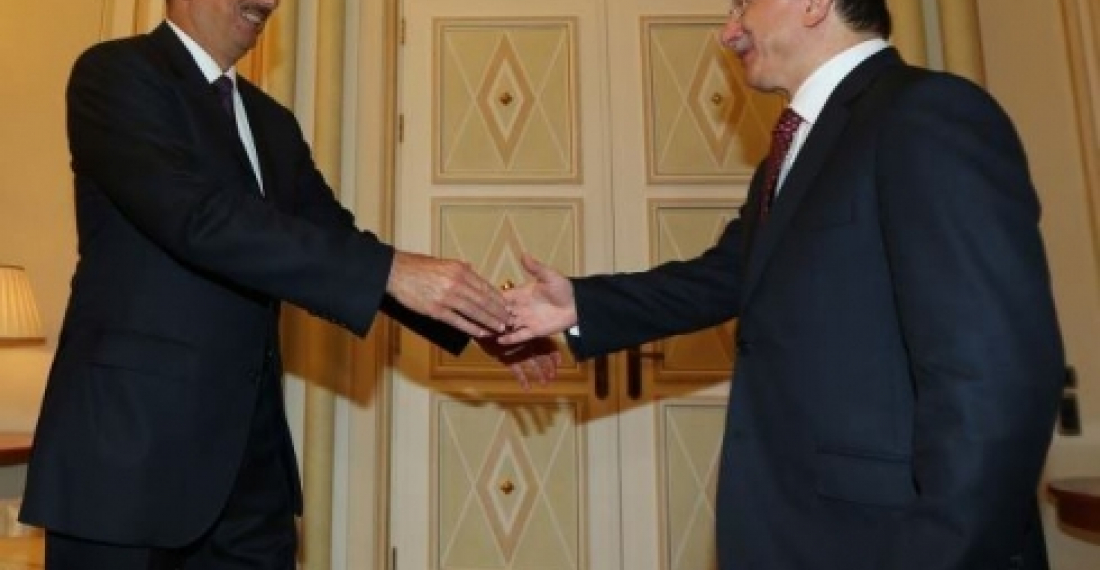Azerbaijan and Turkey have voiced criticism of the current work of the OSCE Minsk Group. Speaking at a press conference in Baku, the Foreign Ministers of the two countries expressed concern at the lack of progress in the current negotiation format.
Turkish Foreign Minister Ahmet Davitoglu, who is currently visiting Azerbaijan said that the time has come for the international community to take stock of the situation.He said that he appreciated the efforts of the last twenty years, but unfortunately these efforts have not given any results. Everyone should now question the reasons for this failure. He said that apart from the three co-Chair countries (France Russia and the United States), the other members of the group, which include Turkey should be allowed to be more active in the search for a solution to the Nagorno-Karabakh conflict.
Speaking at the same Press Conference, Azerbaijani Foreign Minister Elmar Mammadyarov said that Azerbaijan has objective reason to be dissatisfied with the activity of the co-chairs: "We would be so glad if any progress was achieved by the mediation from these countries during this period. But we do not see such progress, and for sure we are dissatisfied with the activity of the co-chairs."
Mammadyarov however also confirmed that the possible summit of the Presidents of Armenia and Azerbaijan had been discussed during his meeting with the Armenian Foreign Minister in Vienna a few days ago, and that "Azerbaijan supports this idea".
Later in the day, Foreign Minister Ahmit Davitoglu was also received by the President of Azerbaijan Ilham Aliev.
source: commonspace.eu with agencies
photo: President Aliev of Azerbaijan welcoming Turkish Foreign Minister Ahmit Davitoglu in Baku on 17 July 2013. (picture courtesy of the Turkish Foreign Ministry).







